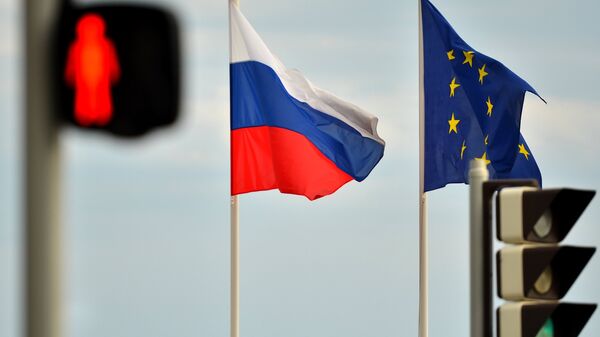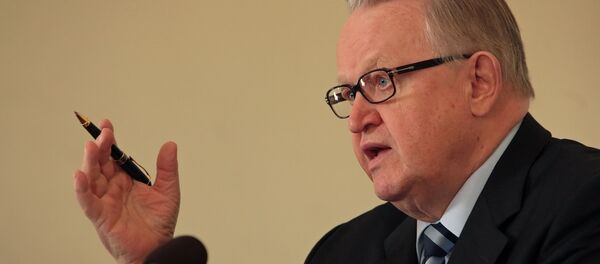Former Finnish Prime Minister Vanhanen, who currently serves as the chairman of the parliament's foreign committee, expressed criticism of the sanctions policy by stating that they obviously had no desired effect on Russia's behavior. Whereas this strategy has proven ineffective, it is nevertheless a common policy which is obligatory to follow for every EU member state.
"Naturally, we hope that we could one day see an end to the sanctions. But we first need to find a solution for Ukraine," Vanhanen said, as quoted by Finnish newspaper Uusi Suomi.
"I'll probably receive a beating for this statement, but I do believe it's high time to resolve the Ukrainian crisis," Gustav Hägglund told Finnish newspaper Etelä-Saimaa, commenting on his controversial statement.
Even British economist and author Keith Boyfield, the founder and director of Keith Boyfield Associates Limited, predicted a "new era" in relations with Russia, following Brexit and Donald Trump's accession to power.
"With the UK preparing to leave the EU, the sanctions against Russia may be lifted as early as 2017, as Italy, Greece and Hungary have already questioned their value," Boyfield said, as quoted by Uusi Suomi.
The EU sanctions, featuring restrictions on Russian banks' access to international money markets, were first imposed after Crimea's historic re-unification with Russia in 2014. Moscow followed up with counter-sanctions, stifling food imports from the EU.
In December, the EU is expected to extend its sanctions against Russia once again despite the fact that the effectiveness of these measures has been seriously questioned by countries like Italy and Hungary, which have strong business ties with Moscow.





